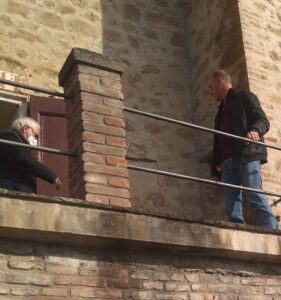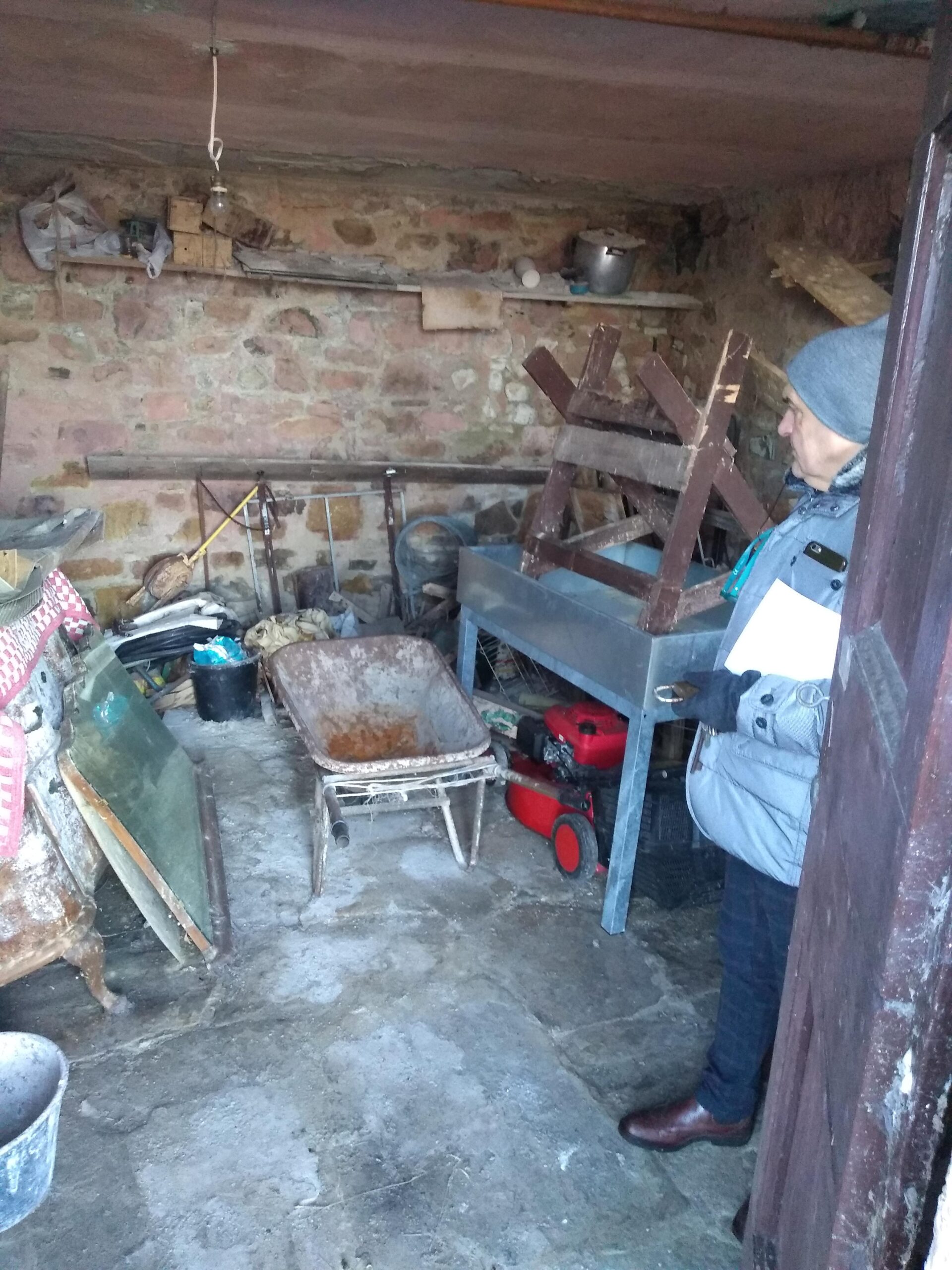
“We really do not want to see another property, Marco.”
Our estate agent, looking deeply disappointed, scrapes the last of the espresso from his cup, with a tiny spoon.
We’re still looking for a new home. Meanwhile the B&B has been sold, so there’s, what you might call a growing sense of urgency to our search. Up until today we must have visited at least twenty houses, villas, farmhouses, and of course the beautiful, but totally unfeasible dilapidated church.
“I thought we agreed, no more ‘projects’?” Dominique says.
She has a point, my sensible spouse. We’re looking for a house we can move into without much hassle.
“But that church was really charming,” I say.
She gives me the look before turning away.
The last property we seriously considered lay nestled in a valley, just above a small river. Fairytale-like, honestly breathtaking. The house itself lacked almost all of the charm we’re after, but the surroundings almost made up for it. And it was “convenient,” as it was pretty modern. It’s just that the water situation posed a “small” issue. The property wasn’t connected to the acquadotto, the water mains.
“But the sorgente—the spring up the hill—usually provides enough water,” Fabio, the estate agent showing us around, said reassuringly. Unfortunately, he couldn’t confirm whether the water was drinkable. Judging by the stack of empty water bottles next to the house, the current residents didn’t seem to think so. “Usually” also sounded a bit dubious.
The man from HERA, the company responsible for water supply, didn’t see any problem. “You just need about seven hundred meters of piping to connect the house to the meter by the main road.”
A week later, we walked the route from the house to the meter and back with Ivo, our go-to guy for anything involving pipes, digging, and connections. His expression said it all as he examined the map showing who owns which peace of terrain and where exactly. The four different landowners whose property the pipe would have to cross were the least of his concerns.
We’d also need to navigate two streams.
“That means you’d have to apply for a permit from Renana,” Ivo explained, shaking his head. Renana are the central authority responsible for streams, rivers, basins, and the surrounding land. “That takes at least two years—if you ever get the permit.”
In my naïveté, I asked whether we could just follow the road instead. It was a bit longer, but still…
Ivo barely contained his laughter.
“That’s the Strada Provinciale.”
It took some time for him to realize we didn’t understand, so he kindly illuminated us.
“The province has to issue the permit for roadwork, but the land along the road belongs to the municipality, so they have to approve it too.” I was already losing hope, but Ivo wasn’t finished. “And since the road crosses the same two streams, Renana would also need to issue a permit.” Did we have a lot of money and infinite patience?
Every property in Italy technically has the “right” to be connected to the water mains, but… Usually in cases like this, there’s an “Italian” solution: you install the piping anyway and hope there’ll be no inspection within the first two years. By then, a customary right has been established, you pay a fine, and everything will be formalised. There’s even a word for this: sistemare—to set things right.
Usually, Ivo’s on board with this approach. Not this time however.
“Renana checks these streams every year. I wouldn’t risk it.”
There’s some advice you just don’t ignore.
“You’re moving further from civilization with every house,” Ivo said offhandedly. But his words landed like a shout in my ear.
He’s right. This place is even farther removed from villages and amenities than we already were. Is this really what we want?
The answer is a clearcut, no. We want neighbours, some friendly faces to chat with, and a shop nearby—preferably two.
So here we are at the mercy of another agent, Marco, surrendering ourselves to his notion of what counts as “one viewing.” We’re crammed into the back of his Skoda while his dog gently sniffs the back of my neck. So far, we’ve seen three houses we didn’t ask for. When we walked into his office earlier, he grabbed not one but eight keyrings, so we should’ve known what we were in for. Of course, driving ourselves wasn’t an option—Marco absolutely insisted on chauffeuring us.
“This podere—this farm—comes with nearly five acres of farmland and seven of bosco, forest,” Marco’s enthusiasm isn’t contagious. I try to explain, gently, that we’re not looking for twelve acres of land. Just a garden. All we really want to see is the casa torre, the tower house in the borgo that I’d called him about.
“But you could start an agriturismo here!” He also happens to have keys to a move-in-ready agriturismo, a real bargain, apparently. “You’ll want to see that, surely?”
Our synchronized “No!” from the back seat convinces him.
“Fine, we’ll head to Borgo Casigno,” he sighs. “But first, coffee.”
Naturally, the café is a bit out of the way, but they do have the best paste—sweet pastries—and of course, Marco won’t let us pay.
And so, three months after our first visit to the borgo, we finally stand in front of the casa torre in Casigno again. It smells like spring, and just as we’re about to climb the external staircase, the clouds part and the sun peeks through.
Marco holds a modest bunch of keys—just three—compared to the usual eight to fourteen for the kind of houses we’re interested in. His search for the tiny key of the meter box takes several minutes. Once he confirms there’s electricity, he opens the shutters and launches into an enthusiastic monologue about the quality of the construction and restoration.
His lyrical eulogy passes us by, completely.
In the living room on the first floor, Dominique and I halt and our eyes lock.
The borgo had already felt right, but this? This feels like home.
